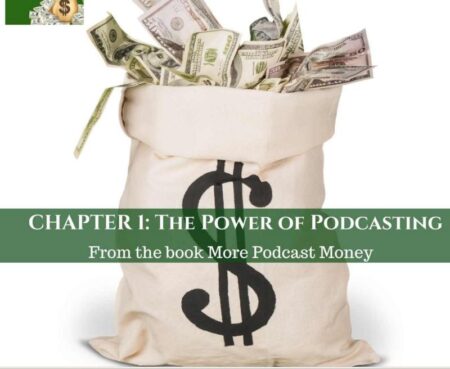Podcast: Play in new window | Download

In this episode of The Podcast Reporter, we focus on the theme of strategies that can make or break the success for a profitable podcaster. And this theme was targeted for creative individuals and entrepreneurs. It was taken from a podcast episode by Todd Henry from his podcast show, The Accidental Creative. And the title of the podcast episode was “Do You Know Your Red Zone Activities?”
As you may well know, in American professional football (i.e., NFL), the Red Zone is an area for 20 yards that can either make or break the success of a team in scoring — and usually, the team who can score within this area usually can win, whereas the teams who struggle to score touchdowns from this area is exposed and may not win.
As you will hear in Todd’s audio podcast, there are several qualities that can mark your own red zone activities; and you need to address to make sure that your podcast show can be sustaining the revenue streams and remain profitable:
- Activities that you can uniquely do or add value to because of your position or expertise.
- Activities that increase your personal capacity to generate ideas, such as study, purposeful ideation, or intelligence gathering. These are typically the first to go during a busy or stressful season. Are you taking the time to sharpen your mind and your creative intuition?
- Activities that provide cohesion or creative traction for your team and increase future capacity.
- Activities that feed your energy, such as adequate sleep, exercise, or spiritual practice. These are most often neglected during busy or stressful times, but you will need these to be prepared to be profitable.
And Todd does explain with examples what he means in each of these qualities.
Now, do you yourself have what it takes to be a profitable podcaster and execute successful strategies for your own “red zone?” According to Todd, it does not take a super-hero to be successful, but rather someone who can place the proper emphasis at the right time: “The most accomplished people aren’t always the smartest or the most talented. Rather, they are the ones who do small, important things every single day for long periods of time. They succeed in the red zone.”
So for this podcaster, my suggestions would stem around the productivity areas where you can plan effectively and execute your plans and strategies effectively, with the proper importance to tasks.
We hope that you can include all 4 of these qualities in your own life and then execute your strategies that can help make your podcast successful and profitable.
Thank you for your attention.
Copyright (c) 2020, Matrix Solutions Corporation and Todd Henry. All rights reserved.



